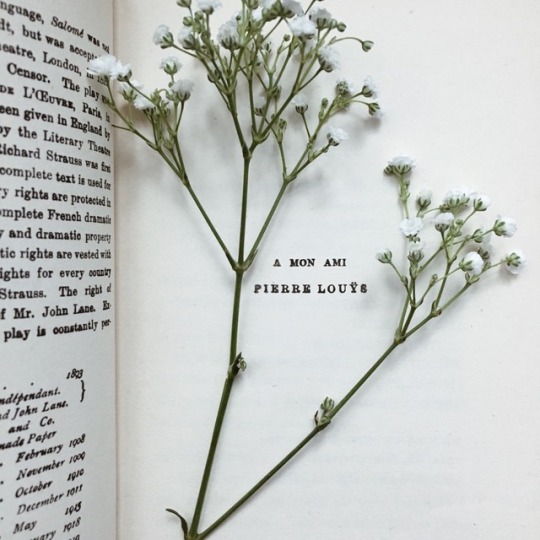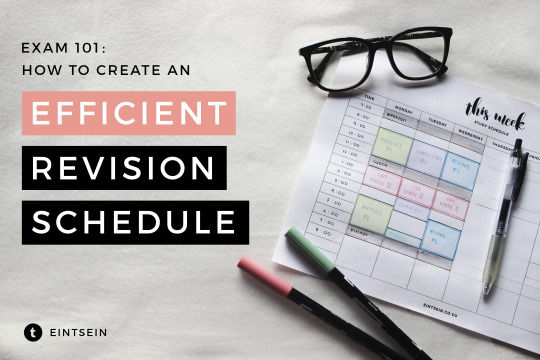This is my studyblr!! I'm learning Spanish and my favorite subject is history. My main blog is @panicyardeee
Don't wanna be here? Send us removal request.
Text
BaBaDum Challenge

Hey! So, you all know (if not, check it out) the super cool website called Babadum ? The cute website that offers little games to help you learn a bunch of languages? I decided to create a little challenge for it, because it is one of my fav things to use. I will do the challenge myself, and if anyone wants to participate too, feel free to do so! Week 1: Game A - four pictures, one word Reach 50 points in your target language every day. Week 2: Game B - four words, one picture Reach 40 points in your target language every day. Week 3: Game C - four pictures, one sound Reach 30 points in your target language every day. Week 4: Game D - several letters, one picture Reach 20 points in your target language every day. The points decreased because of the increased difficulty of the games, but feel free to choose an amount that suits you best. The same goes for the amount of days you want to dedicate to each game.
Extra: Write down all the words you didn’t know (maybe give yourself a minimum of words every day, too). (You could write down the words in your target language without a translation and check them the next day and translate them for some repetition or smth if you fancy.) I will post my word lists on my tumblr from time to time (if I am not too lazy)
440 notes
·
View notes
Text
When people ask me why they should pay a human translator instead of using google translate I show them this picture:

107K notes
·
View notes
Photo


for my birthday my friend gave me a stolen copy of oscar wilde’s salomé, in french, dated 1927.
10K notes
·
View notes
Photo

30th May 2017 — i realised that i make different styles of content for my studygram and studyblr HAHA but here’s a flat lay i posted on my studygram (。・ω・。)ノ currently listening to // re-bye — akmu>
taken from my studygram: @charlenestudies ☁️
7K notes
·
View notes
Photo

When you feel like a fairy who just wants to read and blog all day <3
5K notes
·
View notes
Text
Since it’s finals season here’s to the people that:
- try and get D’s and F’s still - failed a class or classes this semester - didn’t get into the college they wanted - struggle with learning disabilities - couldn’t get scholarships due to a low gpa - have mental illnesses that zap their motivation to do anything else besides make it through the day - have to take summer school - weren’t able to graduate
You are not an idiot. You do have worth. And you CAN still go places in life. Your report card does not define your worth as a person.
Take care 💛
21K notes
·
View notes
Text
You know what I think is really cool about language (English in this case)? It’s the way you can express “I don’t know” without opening your mouth. All you have to do is hum a low note, a high note, then another lower note. The same goes for yes and no. Does anyone know what this is called?
409K notes
·
View notes
Photo

my current bullet journal spread 💛 my studygram: @study.us
NOTE: use my code “STUDYUS” for 10% off + FREE SHIPPING WORLDWIDE at kawaiipenshop.com 💖 ⬅️ more cute stationeries 😉💖
6K notes
·
View notes
Photo

Leonardo da Vinci understood geology so well that he found physical evidence to dispute Biblical claims. His studies of rocks, fossils, and river erosion led him to the conclusion that the world is far older than stated in the book of Genesis, and he argued that marine fossils found in the mountains were the result of falling sea levels, not the Great Flood. Source Source 2
4K notes
·
View notes
Text
if you’re learning spanish russian french or german and don’t like using memrise or duolingo definitely try lingvist cause it’s free and they have an app and a website. it definitely focuses on vocab (in context) but relevant grammar notes pop up regularly and there’s a whole grammar section you can read through if you’re a complete beginner
10K notes
·
View notes
Text
hello! i’m looking for more small studyblrs to follow! if you have less than 1k followers, please reblog this post and let me know in the tags. it would also be great if bigger blogs could spread this around; tag as boosting if you want to do so. thank you!
472 notes
·
View notes
Photo






A woman holds her cat dressed in the traditional Ukrainian embroidered blouse Vyshyvanka, while hundreds join the “Vyshyvankas March” in downtown Kiev, Ukraine, 27 May, 2017. Ukrainians wear these traditional clothes called Vyshyvankas during an annual march meant to popularize Ukrainian ethnic traditions and culture. [Full gallery]
828 notes
·
View notes
Note
how do you avoid mixing target languages together??
Hi! I do have a few tips on how to avoid mixing your target languages and they are:
If possible, avoid studying similar languages at the same time, for example two languages from the same language family (like Spanish and Portuguese, German and Dutch, Russian and Ukrainian, etc.)
Don’t start two languages from the scratch at the same time but wait until you have a good base in one language before starting the next one
Differentiate when and how you study your target languages: you study language x in the morning and language y in the evening, language x with textbooks and language y with internet resources, language x at school and language y at home, etc.
Refine your pronunciation for each language and try to be as specific and precise as possible to avoid speaking language y with an accent from language x and vice versa
Use associations to help you get to the mental stage of studying or speaking the language: for example, if you are learning Finnish, you can imagine being in a snowy forest, enjoying the quietness, and looking up to admire the northern lights dancing above you
Don’t get frustrated and give up, forgive yourself for making mistakes and keep practicing, it’ll get easier over time
I hope this helps, good luck!
253 notes
·
View notes
Text
As I get older I’m finding that a lot of the “intellectuals” I used to admire are actually just condescending and pretentious. And also realizing how much more important it is to be present, considerate, and empathetic because nobody really knows what they’re talking about and anyone who claims to know everything about anything is feeding you bs.
423K notes
·
View notes
Photo


Pretty rad day. Lots of stress, but thanks to @phorusrhacidae for helping make it less so!
29 notes
·
View notes
Photo

To be honest, I’m not the type of person to follow a strict schedule and have their entire day together. However, scheduling has allowed me to maximize my time and have more productive revision sessions. Aside from compelling you to actually start studying, scheduling takes into account your ability to retain information and sustain focus. Because they organize your revision according to your needs, studying becomes less threatening and less draining, ultimately making your study sessions more enjoyable.
What should I study first?
The first step might seem obvious, but it is also one that’s often overlooked: list down all the subjects you need to study and what exactly you’ll need to do for each of them. Are you simply going to revise the theory, practice from past papers, or both? At this point, you should probably have notes, flashcards, or other study materials ready to be revised, but if not, make sure that you schedule some time to write them. By identifying the specific tasks you have to accomplish, you’ll have a rough idea of how much load you’ll have.
The next thing you want to do is sort the subjects in order of priority, such as
Weakest to strongest
“Heavier” subjects first, i.e. those that require long hours of rigorous practice, revision, and memorization; or
According to your exam schedule.
Tackling your weakest subjects first would be the better option if there are topics you don’t fully understand yet. Because you have to spend time developing your understanding of the topics, your study sessions won’t comprise pure revision. This is perfectly fine; you should always make sure you’ve studied the topics before you revise them. The difference between studying and revising—although some people use the two interchangeably—is that revising serves to train your memory and ability to do the actual examination, while studying means obtaining knowledge about a particular subject.
If you’re sure you understand all the material on which you’ll be tested, you could opt for revising heavier subjects first. For example, I chose to revise Chemistry first because I need to memorize a lot of reactions. Earlier revision for chemistry also allows me to apply the technique of spaced repetition to enhance my memory. This also leaves me with plenty of time to do past papers to test my memory and knowledge.
How long should I spend revising?
Now you know what and how you need to revise, but how long do you need, exactly, to complete each of your tasks? The best way to do this is to try it out! If it’s not too late, have a ‘trial hour’, where you revise any subject/topic for an hour and see how much you can get done. This way, you can allocate suitable lengths of time to revise each topic in all the subjects you’re taking. For example, in a trial hour for physics, I managed to finish nuclear physics in 30 minutes, and 2/3 chapters of electricity. This means that longer topics like electricity would take me around 45 minutes, while shorter ones like nuclear physics would take me 30 minutes.
Time-blocking this way is great for when you’re under a time constraint, but if you still have a lot of time before your exams, I recommend allocating ‘study sessions’ in general (i.e. not for specific subjects/topics), which will be covered later.
You’ll also want to consider how long it normally takes you to do past papers if you plan on doing any. Maybe you’ve done past papers before and you’ve always finished ahead of time. I usually take 45 minutes to 1 hour to finish my Physics, Chemistry, and Mathematics paper, even though their allocated times are longer than that. I usually spend the rest of the time to mark the papers and analyze my mistakes. I believe it’s better to allocate time according to your speed in order to maximize your time, instead of using the actual time of the examination.
Ok, but when should I do these things?
The first thing you should consider is how your body’s energy levels change throughout the day, then you’ll be able to decide when to concentrate your most rigorous study. For example, I study best at around 9 – 11 am and 4 – 7 pm, during which I revise heavier subjects like Physics and Chemistry. On the other hand, my brain slows down at 1 – 3 pm, and during this period, I choose to practice Math or English, subjects that I believe I can still practice at a leisurely pace.
Next, think about your concentration habits. How long can you sustain focus before nothing gets into your head anymore? Before you feel drowsy and drained? This will determine how long you should study before you take a break. A lot of people use the Pomodoro method of studying for 25 minutes then taking a 5-minute break.
However, sometimes I just can’t stop studying or revising, and I would prefer to wrap up what I’m currently doing before taking a break and moving onto my next task. In other words, I prefer to divide my study content, as opposed to dividing my time. Luckily, revising a single topic usually takes me 40 minutes, after which I can take a 5-minute break.
Other people prefer to take more regular breaks, so that they may regain energy before continuing their revision. If you retain information better this way, then please do take regular breaks.
Should I study one subject the entire day or alternate every hour?
Again, this is entirely up to you. Sometimes people get tired of continuously studying a single subject, and their study sessions end up unproductive if they do so. If you feel the need for variety, then alternating would be best. But if you’re like me and have very high studying inertia, studying one subject the entire day would be better.
The same applies to studying theory and doing practice questions. Some people prefer to study some topics then do topical past papers, with the topics divided throughout the week. I prefer to revise all the topics in a day or two, then complete actual past papers the rest of the week.
What if I don’t stick to my schedule?
If you’re a P type (mbti) like me, you probably won’t. One of the most common problems I face is that when I’m supposed to be studying one subject, I feel like studying another. Well, let me tell you that this is alright, but to maximize your day, make sure that each activity has a flexible block. Alright, this is going to be a pain to explain, but I’ll try:
Let’s say you’re supposed to revise 5 chapters of physics today. 3 of these topics take 40 minutes to revise, and the other 2 take 15 minutes. You also want to take 5-minute breaks in between each chapter. This totals up to 170 minutes, or 2 hours and 50 minutes. I admit it’s pretty difficult to reschedule 2 hours and 50 minutes if nothing else on your schedule takes x hours and 10 minutes. The answer is simple: schedule a break. You’ll then have a whole number which is a lot easier to reschedule.
The second problem that could arise is that you fall behind. This is why you should always schedule a fallback hour or two at the end of the day in case your revision took longer than expected. I’ve also scheduled a fallback day in the past when I was studying for my IGCSEs, just because there was so much material to cover and I was reluctant that I could accomplish so much in so little time (a week).
If you don’t end up using your fallback hour/day to catch up, you could always use it for non-academic activities.
Recap/TLDR:
Know what you need to do for each subject
Prioritize your subjects
Allocate suitable lengths of time for each revision activity
Schedule study sessions according to your body’s energy levels
Your concentration habits should determine the length of each study session/block
Your study inertia or need for variety should determine the subjects you study in a day
Ensure that each activity has a flexible block by scheduling breaks
Set aside a couple hours or an entire day to catch up in case you fall behind schedule

Now that you know how to schedule your revision, here’s a printable to help you out! It’s a simple, weekly planner with time slots, and an example of how to use it is shown in the photo below. I put 16 empty time slots because everyone has different active hours (e.g. mine is 7 am to 9 pm, others’ might be earlier or later), which makes this planner more flexible. Feel free to use it for other activities, too (aside from studying).
Download it here in my studyblr drive
Don’t forget to tag me (#eintsein) when you use it. Hope this post helps and best of luck in your studies!

6K notes
·
View notes
Text
When you use one language’s grammar for another languages vocab and you’re just kinda like: Today pretty is. cute is. english speak please. hi i english speaking am.
171 notes
·
View notes